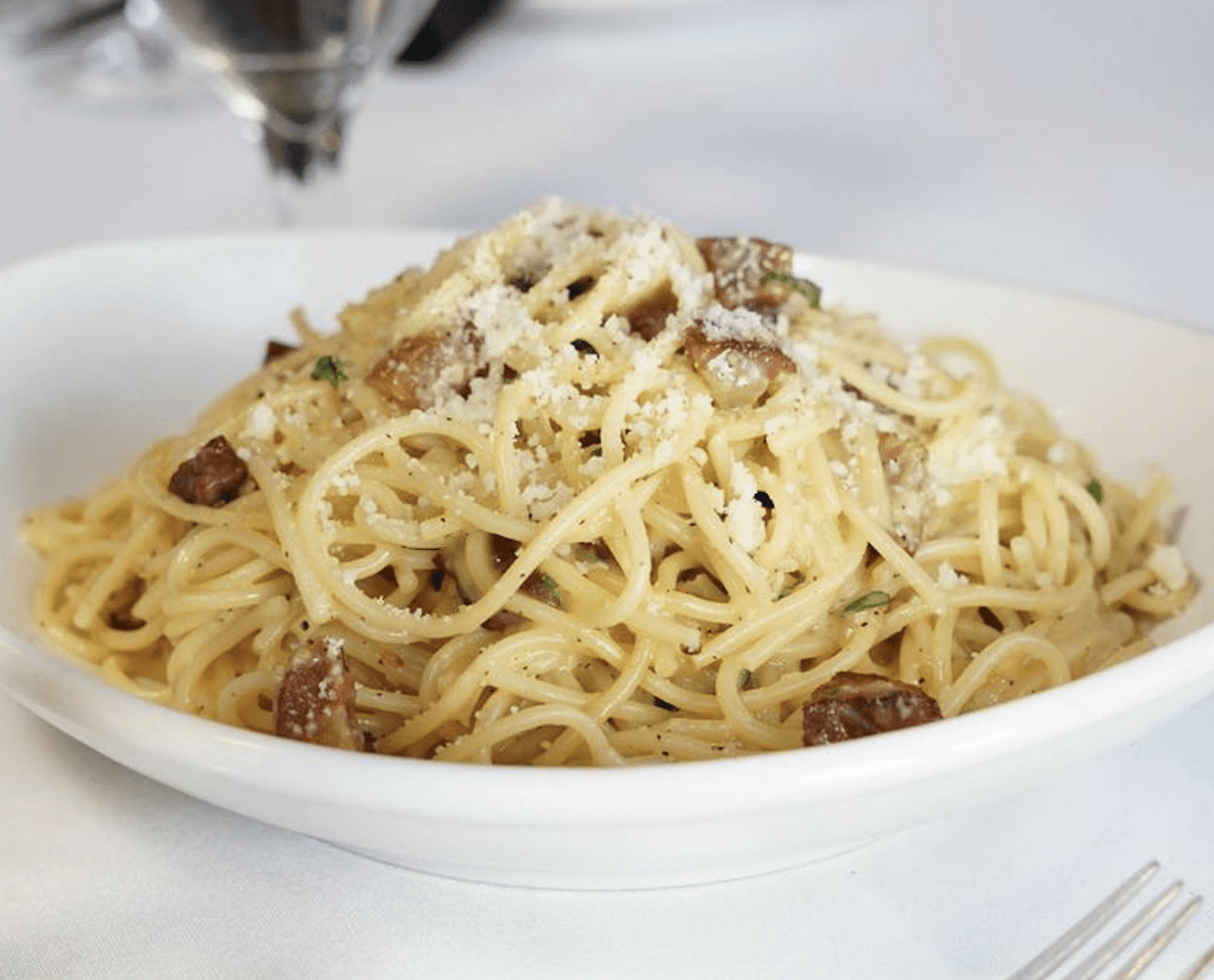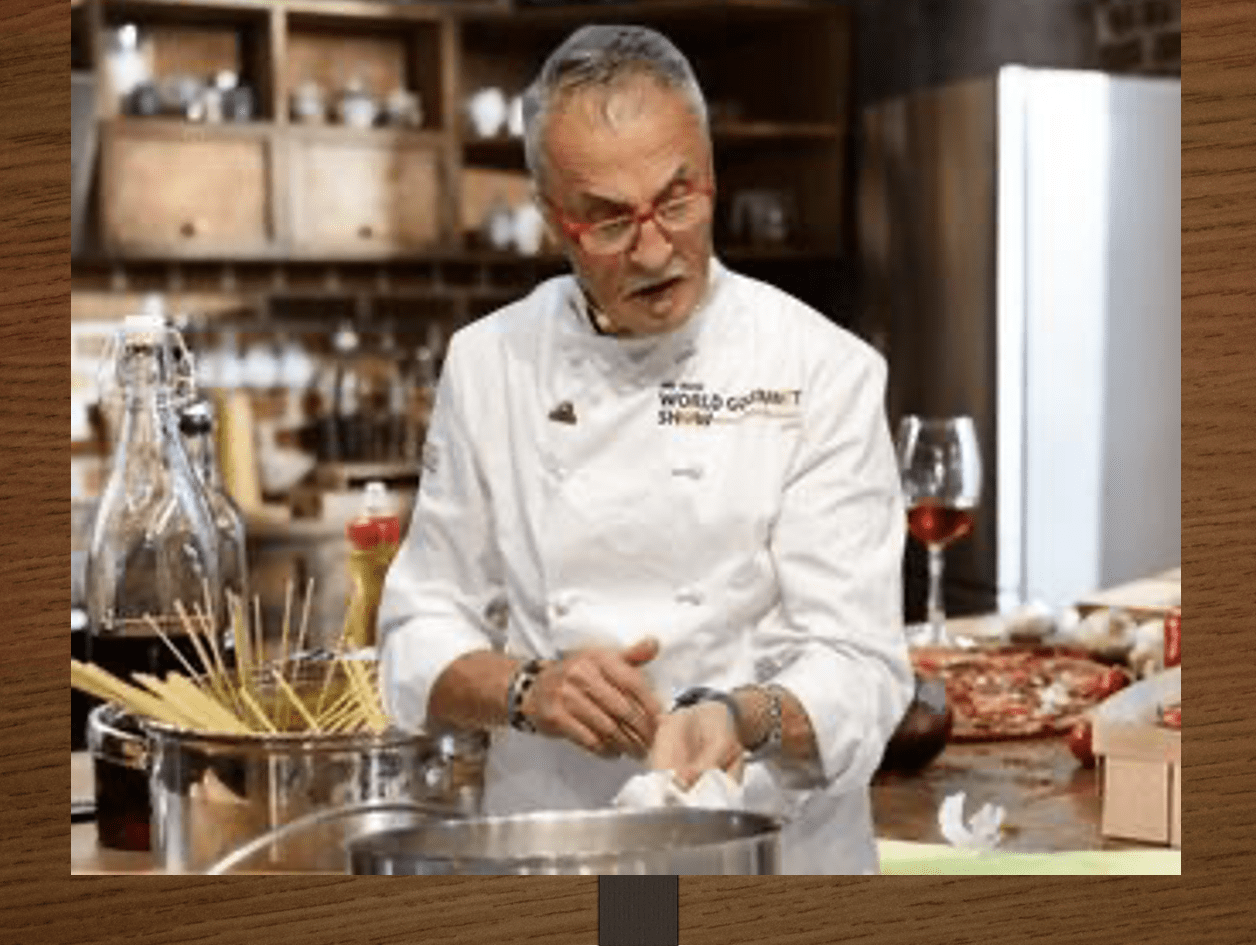Search Posts
Recent Posts
- U.S. Carries Out Limited Strike on Iran’s Known Nuclear Sites (Updates) June 22, 2025
- A Greener View: E. Coli vs. Vegetables, and Your Garden – Jeff Rugg June 22, 2025
- Rhode Island Weather for June 22, 2025 – Jack Donnelly June 22, 2025
- Ask Chef Walter: The Art and Science of Baking – Chef Walter Potenza June 22, 2025
- Gimme’ Shelter: Aurora is waiting for a home at the Providence Animal Control Center June 22, 2025
Categories
Subscribe!
Thanks for subscribing! Please check your email for further instructions.

Ask Chef Walter: Carbonara – Walter Potenza
by Executive Chef Walter Potenza, contributing writer

Dear readers, this week we are featuring a great tested recipe for the classic pasta alla Carbonara, a dish with a rich history. The recipe is courtesy of the great Italian restaurant Maria’s Cucina located inside the Italo American Club on 477 Broadway, Providence, RI 02909
This is a recipe tested with accuracy in our Cooking School.
History of Carbonara
Carbonara is one of the most beloved dishes in Italian cuisine, particularly associated with Rome and the Lazio region. Its origins are somewhat mysterious, with various theories about how it came to be. Some say it was created by Italian charcoal workers (carbonai), who needed a quick, easy meal made with readily available ingredients. Others suggest that it emerged during World War II when American soldiers stationed in Italy combined their rationed eggs and bacon with pasta. Regardless of its exact beginnings, Carbonara has become a staple of Italian gastronomy, celebrated for its simplicity and rich, comforting flavors.
Authentic Carbonara Recipe
The key to an authentic Carbonara lies in the quality of ingredients and the technique. The sauce should be creamy without using cream, relying solely on the emulsion of egg yolks, Pecorino Romano, and the rendered fat from guanciale.
Ingredients:
- 400g (14 oz) of spaghetti
- 150g (5.3 oz) of guanciale (cured pork cheek), cut into small strips
- 4 large egg yolks
- 100g (3.5 oz) of Pecorino Romano cheese, finely grated
- Freshly ground black pepper
- Salt for pasta water
Instructions:
- Prepare the Ingredients:
- Bring a large pot of salted water to a boil. Once boiling, add the spaghetti and cook until al dente, according to package instructions.
- While the pasta is cooking, prepare the guanciale. Place it in a large skillet over medium heat. Cook until the fat has rendered and the guanciale is crispy, about 5-7 minutes. Remove from heat.
- Make the Sauce:
- In a large mixing bowl, whisk together the egg yolks and grated Pecorino Romano until smooth and creamy. Add a generous amount of freshly ground black pepper.
- Once the spaghetti is cooked, reserve about 1 cup of the pasta cooking water, then drain the spaghetti.
- Combine and Serve:
- Add the hot spaghetti to the skillet with the guanciale, tossing to coat the pasta in the rendered fat. Allow it to cool slightly.
- Pour the egg and cheese mixture over the pasta, tossing quickly to create a smooth, creamy sauce. If the sauce is too thick, add a little reserved pasta water to loosen it.
- Serve immediately, garnishing with additional Pecorino Romano and freshly ground black pepper.
Chef Walter’s Tips:
- Guanciale vs. Pancetta: Guanciale is the traditional choice for Carbonara, offering a richer flavor. Pancetta is a good substitute, though it lacks the depth of guanciale. Avoid using bacon, which introduces a smoky flavor not found in authentic Carbonara.
- Pasta: Spaghetti is the classic choice, but rigatoni or bucatini can also be used.
- Eggs: Using only egg yolks results in a creamier sauce, though some recipes call for whole eggs. Stick to yolks for a richer, more luxurious texture.
Non-Authentic Variations:
While the traditional Carbonara is a simple, perfect dish, many variations have emerged over time, some of which stray far from the original. Here are a few examples:
- Adding Cream: Some recipes include heavy cream to create a thicker sauce. While this results in a rich dish, it’s not authentic and can overshadow the delicate balance of eggs and cheese.
- Use of Bacon: Substituting guanciale with bacon changes the flavor profile due to the smokiness. It’s a common adaptation but deviates from the traditional taste.
- Garlic and Onion: Some variations include sautéing garlic or onions with the guanciale. While these additions add flavor, they’re not part of the original recipe.
- Vegetarian Carbonara: Substituting guanciale with mushrooms or other vegetables creates a vegetarian version. While it can be delicious, it’s a significant departure from the traditional dish.
- Seafood Carbonara: Some chefs incorporate seafood, such as shrimp or scallops, into Carbonara. This can be a creative twist but isn’t reflective of the classic Roman dish.
Carbonara, in its authentic form, is a testament to the beauty of Italian cuisine—simple, high-quality ingredients combined to create something greater than the sum of their parts. While variations can be tasty, there’s nothing quite like the original.
Carbonara Photo courtesy of Maria’s Cucina
flavors + Knowledge Get the latest on food, wine, travel, cooking and culture www.chefwaltersfoodtours.com
Emilia Romagna, May 12 – 19, 2025, Chef Walters Food + Wine + History + Culture Tour
___

Meet Chef Walter!
There is a constant, recognizable thread in the career of Walter Potenza to elevate the level of Italian culinary culture in the United States. Besides his unquestionable culinary talent and winning business perspective, Chef Walter has been a relentless educator with passion and knowledge who defeats stereotypes. His life, career, and values are a model, an example to follow by any chef of Italian gastronomy working outside Italy.
Chef Walter appears regularly on National and International Networks such as Food Network, ABC, CBS, NBC, RAI, FOX, and Publications such as NY. Times, Washington Post, Wall Street Journal, Food & Wine, Saveur, Gourmet, and several Italian media outlets. And now – RINewsToday!

